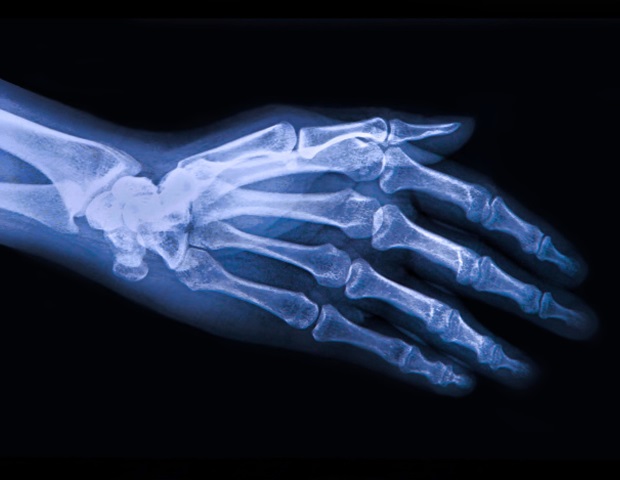
Researchers have uncovered a number of new genes and genetic pathways that would result in repurposing lots of of present medication for osteoarthritis, the commonest type of arthritis.
The analysis, which analyzed information from practically 2 million individuals in various populations worldwide, was lately revealed in Nature. It represents an in depth genetic exploration of osteoarthritis, a situation affecting over 600 million individuals globally.
Performed by a world workforce led by Helmholtz Munich in collaboration with Rush College Medical Middle and 125 high tutorial establishments worldwide, this initiative is the biggest genetic investigation into osteoarthritis carried out and the biggest musculoskeletal examine.
The examine uncovered 962 genetic variants related to the illness and spotlighted 69 key genes whose protein merchandise are already focused by 473 accredited medication – lots of which may very well be redirected to handle osteoarthritis extra successfully. This discovery results in a fast-track to customized medication and modern medical trials.
“This examine takes a leap ahead in providing tailor-made therapies for osteoarthritis sufferers, lots of whom have lengthy awaited disease-modifying choices,” stated Dino Samartzis, DSc, co-author, professor and director of the worldwide backbone analysis and innovation initiative of the Division of Orthopedic Surgical procedure at Rush.
“This analysis is a beacon of hope. By leveraging human genetics, we will now reimagine rather more successfully as to how we deal with this widespread situation.”
Osteoarthritis outcomes from the gradual breakdown of cartilage within the joints.
It differs from rheumatoid arthritis, an autoimmune dysfunction, and is a number one explanation for ache, diminished mobility and incapacity – projected to have an effect on 1 billion individuals by 2050. It prices america practically $486 billion yearly and as much as €817 billion in Europe.
As orthopedic specialists, we see firsthand how osteoarthritis impacts high quality of life. This examine takes us nearer to growing focused biologics that not solely alleviate signs but additionally sluggish illness development and, ideally, restore joint well being.”
Brian Cole, MD, professor of orthopedics at Rush
“With 10% of our genetic targets already linked to present medication, we’re poised to speed up the event of transformative remedies for osteoarthritis,” stated Eleftheria Zeggini, BSc, co-author and director of the Institute of Translational Genomics at Helmholtz Munich and professor of translational genomics on the Technical College of Munich. “That is precision medication at work – providing new hope to tens of millions.”
Historically, osteoarthritis has been managed with ache relievers and mobility aids, however no disease-modifying therapies exist up to now. This examine not solely redefines our genetic understanding of the illness but additionally supplies a path towards repurposing protected, accredited medication, probably slashing the time and price to convey efficient remedies to market.
The workforce stresses the necessity for extra genetically various research and useful genomics information from world populations to additional refine their findings. By integrating genetics with tissue-level molecular insights, the pathway to new, efficient and customized remedies for osteoarthritis turns into more and more attainable.
“This is among the best examples of impactful workforce science,” Samartzis stated. “Researchers and clinicians from throughout the globe united with a singular aim – to vary the trajectory of osteoarthritis look after generations to come back.”
Supply:
Journal reference:
Hatzikotoulas, Okay., et al. (2025). Translational genomics of osteoarthritis in 1,962,069 people. Nature. doi.org/10.1038/s41586-025-08771-z.
